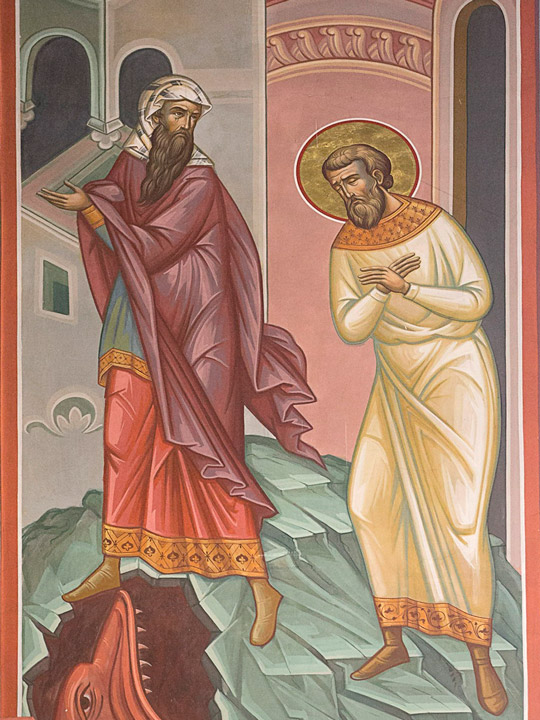
Fr. Dr. Augustine Sokolovski
The second preparatory Sunday for Great Lent is the Sunday of the Publican and the Pharisee. Starting from this day, the Triodion begins to be put into use. Therefore, some interpreters believe that it is this Sunday, and not the previous Week of Zacchaeus, that should be considered the first stage of preparation for Lent.
On this day, during the liturgy, the text from the Gospel of Luke, chapter 18, verses 14 to 18 is read. In this text, the Lord Jesus taught those listening to Him a lesson in attitude towards God and neighbors, the Gospel image of doing good, inseparable from humility and repentance.
According to the sacred text, “two people entered the Temple to pray. One is a Pharisee, and the other is a publican” (10). The appeal to the image of the tax collector - the publican, which in the words about Zacchaeus was a real event, in this Gospel reading becomes a parable. The Pharisee in his prayer thanked God, described his external virtues - fasting, tithing, etc. - and condemned his neighbors for their sins. “The publican, standing in the distance, did not even dare to raise his eyes to the sky; but, hitting himself on the chest, he said: “God! be merciful to me, a sinner" (13).
These short words were miraculously imprinted in the memory of the Church. In the Eastern monastic tradition, the practice of constantly repeating the words of the publican arose, which over time became the Jesus Prayer. And the refusal to imitate the self-praise of the Pharisee has as its consequence the fact that in the Orthodox Church, fasting on Wednesday and Friday, during the week of the Publican and the Pharisee, is strictly abolished. This reading also has a different, sad connotation.
The Pharisee and the Publican prayed in the Jerusalem Temple. In fact, this prayer of theirs was one of the farewell prayers in this, the only divine temple on earth, which, shortly after the Crucifixion of the Lord, was destined to be destroyed under the blows of the Roman Army. From now on, the temple of God will be the hearts of people who believe in Christ.